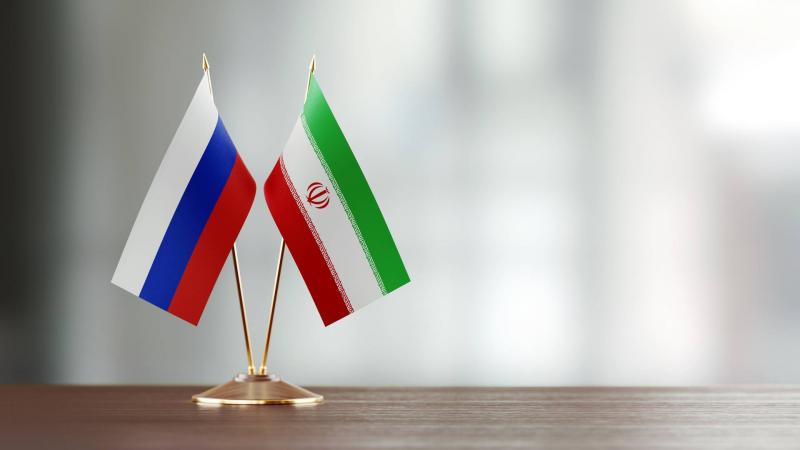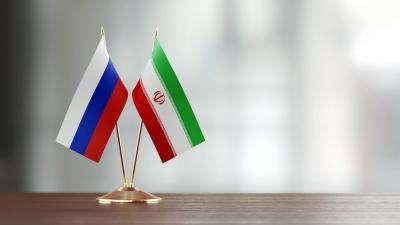Russian-Iranian relations are of utmost importance to the authorities in both countries despite the fluctuations they have witnessed. Currently, Moscow is watching for developments in Iranian foreign policy following the victory of a reformist president in Iran who advocates for dialogue with the West to revive the nuclear agreement and lift sanctions imposed on Iran.
Russian President Vladimir Putin, upon receiving Iranian Parliament Speaker Mohammad Baqer Qalibaf on July 11, expressed that "the strong relations between Iran and Russia will continue." He further stated, "You recently held presidential elections in your country... I wish to express my hope and confidence that relations between Iran and the Russian Federation will maintain the same pace as before and during President Ibrahim Raisi's term."
In a report by the Persian-language American radio "Farda," Ukrainian journalist Anna Ryskaya noted that Russian officials are not particularly worried as they believe that setting the priorities of Iranian foreign policy is the responsibility of the supreme leader, not the president, and that relations between Moscow and Tehran will develop. However, according to Russian experts, if Tehran tries to engage more with the West, it may need to reconsider its relations with Moscow.
It is noteworthy that Russian-Iranian relations have developed unprecedentedly over the past two years. Key factors include Iran supplying drones and missiles to Russia, which have been used in the war in Ukraine, and cooperation in evading sanctions imposed on both countries by Western capitals.
On July 6, President Vladimir Putin sent a congratulatory message to newly elected Iranian President Masoud Bezhikyan, expressing hope that his work as president would develop constructive cooperation for the benefit of the two peoples.
Regarding the future of relations between Moscow and Tehran, Russian media welcomed Ibrahim Raisi's election three years ago as "the best choice," predicting that improving relations with Russia would be a priority for the late Iranian president's government. However, the prevailing view now is that relations with Moscow will continue, although reviving relations with the West may become a priority for the new government in Tehran.
Ryskaya cites the Russian newspaper "Izvestia," indicating that if the new Iranian government seeks to restore relations with the West, it will not be able to turn towards America and Europe while simultaneously maintaining relations with Russia, which has seen its ties with the West reach a historic low.
According to an analysis from the Russian newspaper "Vedomosti," "the West may demand that Tehran stop cooperation with Moscow, especially regarding the supply of Iranian weapons to Russia during the war in Ukraine, but Iran will likely strive to achieve balance and not put all its eggs in one basket."
Former Russian ambassador to Iran, Alexander Mariasov, expressed confidence in an interview with the Russian news agency "Novosti" that "the Iranian leader is not ready to accept Western demands to curb the nuclear program, improve human rights, or abandon support for parliamentary groups in the Middle East, nor will the Iranian government allow that."
On this basis, this Russian expert believes that "the new government in Iran will continue to develop its relations with old friends, especially China and Russia."
Despite the slogan of "neither East nor West, an Islamic Republic" following the 1979 revolution, U.S. animosity, branding it as the "Great Satan," and the occupation of its embassy in Tehran, followed by Washington severing relations and imposing sanctions on the victorious revolutionary regime, drove the "Islamic Republic of Iran" to bolster its position against the United States by seeking support from the "communist Soviet Union," the first country to recognize the theocratic regime in Iran.
Although the relations between Moscow and Tehran are solid, Ryskaya believes they are not free from problems, as Iran's attempts to establish a logistical network in the Caucasus and Central Asia to strengthen its regional position have caused dissatisfaction in the Kremlin. Additionally, the delays by the Russians in completing the Bushehr nuclear power plant and the postponement of the delivery of S-300 missile defense systems remain ingrained in the memories of Iranians, regarded as bad faith from the Russian side.
Even amid unprecedented closeness between the two capitals to support Bashar al-Assad in Syria, disagreements between Moscow and Tehran have not been fully resolved; it's enough to recall how Moscow turns a blind eye to Israeli attacks against Iranian forces in Syria or prevents Iranian fighters from using its military bases in Syria.
However, during the war in Ukraine, Iran provided clear support to Russia, along with Tehran assisting Moscow in overcoming Western sanctions, particularly by sending drones and other military equipment that the Russian army needed in Ukraine. This has pushed the Kremlin for the first time to view Iran not merely as a partner but as an ally.
This development in Russia's perspective, alongside the Iranian government's efforts to enhance its relations with Moscow and China according to the eastern pivot policy to escape Western pressure, has led to fundamental changes in the relations between the two countries.
Some Russian experts have expressed concern that the comprehensive cooperation agreement between Russia and Iran may fall victim to recent changes in Iranian domestic politics, particularly with the reformist camp taking over the executive branch, which reiterates its desire to improve relations with the West and abandon the sole eastern pivot policy.
Recently, conflicting reports have emerged regarding the cooperation document between Moscow and Tehran. Some Russian officials stated they are awaiting the final version from Iran and added: "The Iranian side still has some necessary steps to take." Conversely, some Iranian officials confirmed that the document is ready for signing, and according to Iran's ambassador to Russia, had the Iranian president not died in a helicopter crash, the agreement might have been finalized.
The first comprehensive treaty between Russia and Iran was signed in 2000 with the possibility of renewal every five years indefinitely. However, on the twentieth anniversary of its signing, Hassan Rouhani's government requested an update, and later, Ibrahim Raisi's government announced that strategic relations with China and Russia are among its international priorities.
Following the establishment of a long-term cooperation document with China, formulating a similar document with Russia has also gained significance, yet reaching an agreement in this regard has taken much longer than expected initially.
Many experts believe that even if this agreement is reached, numerous obstacles will remain in the way of full cooperation between Russia and Iran, as the signing of the comprehensive cooperation agreement with China did not lead to a fundamental change in relations between Tehran and Beijing.




